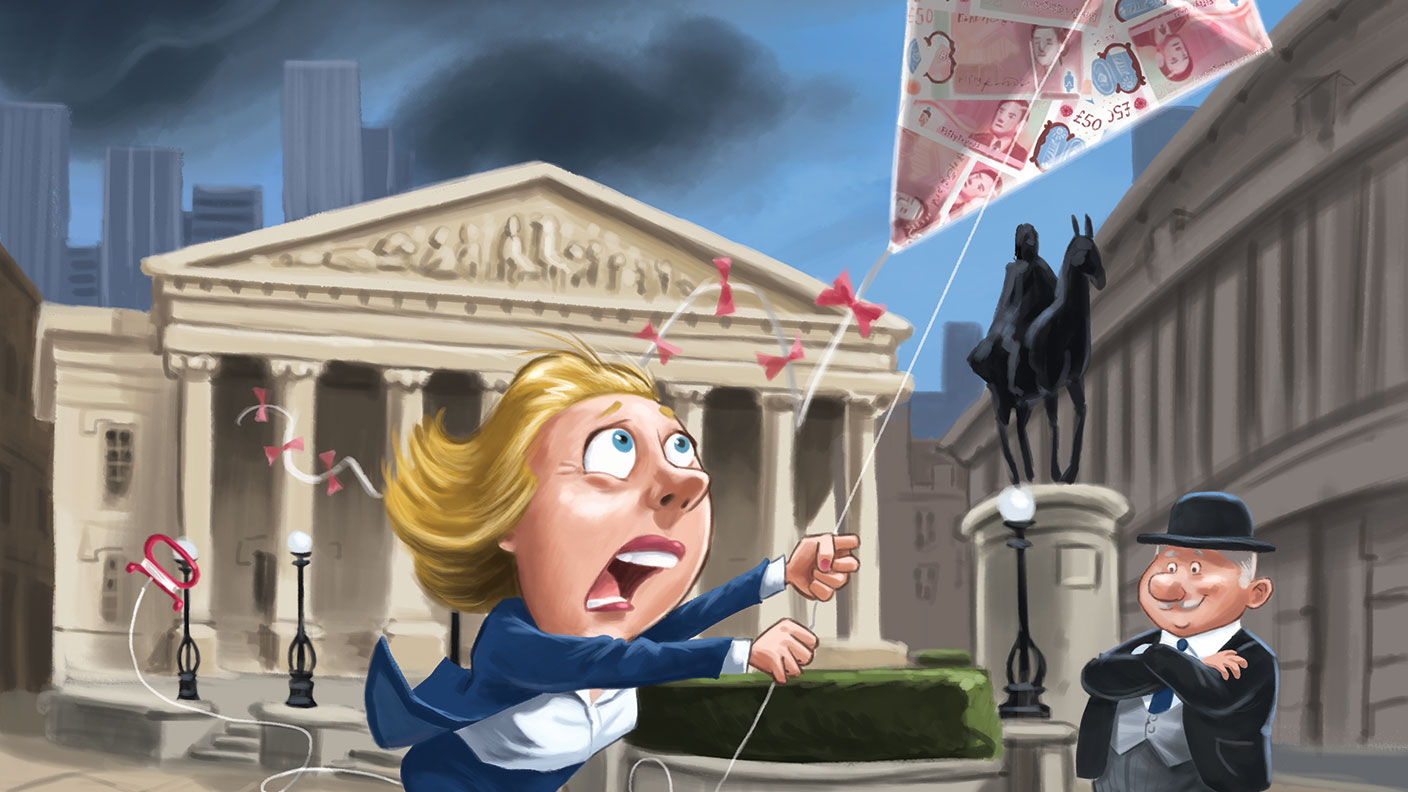Brexit could be just what the EU needs
The European Union needs to be dramatically reformed, says Merryn Somerset Webb. Voting for Brexit could be the best way to achieve that.

Get the latest financial news, insights and expert analysis from our award-winning MoneyWeek team, to help you understand what really matters when it comes to your finances.
You are now subscribed
Your newsletter sign-up was successful
Want to add more newsletters?

Twice daily
MoneyWeek
Get the latest financial news, insights and expert analysis from our award-winning MoneyWeek team, to help you understand what really matters when it comes to your finances.

Four times a week
Look After My Bills
Sign up to our free money-saving newsletter, filled with the latest news and expert advice to help you find the best tips and deals for managing your bills. Start saving today!
Six of the eight opinion polls released in the last week suggest the UK will vote for Brexit. The number of "don't knows" has fallen and most appear to have turned into Leave voters. That's making this week a tense and unpleasant one for those convinced that the world as they know it will collapse on a vote for Brexit. But are they more hysterical than this really merits?
I think they might be. Firstly, the odds of Leave winning are a lot lower than they seem, as those who had a ringside seat at the Scottish independence referendum will know. Then too, everyone was semi-hysterical about a group of polls suggesting the result was too close to call. It turned out to be nothing of the sort: the status quo has a history of being the big winner in referendums and it brought home a pretty decisive victory in Scotland too. It is still part of the UK and it is staying part of the UK.
But the hysteria is also overdone because, even in the event of a Brexit win, the world won't actually end. Instead, as John Stepek notes in our cover storyand Matthew Lynn points out in this week's issue, when the dust clears we will see that nothing much has changed: the UK economy will be "much where it was before with the same strengths and weaknesses". There will be no obvious reason for it to implode or for equities suddenly to be 20%-30% cheaper.
MoneyWeek
Subscribe to MoneyWeek today and get your first six magazine issues absolutely FREE

Sign up to Money Morning
Don't miss the latest investment and personal finances news, market analysis, plus money-saving tips with our free twice-daily newsletter
Don't miss the latest investment and personal finances news, market analysis, plus money-saving tips with our free twice-daily newsletter
That's particularly the case given that there are so many possible models for the UK to think about, following Brexit. At MoneyWeek, we are pretty keen on the Swiss model: this would give us back control over everything from justice to agriculture, while also giving us access to the single market to the extent that we adopted its regulations.
We'd pay an entrance fee, of course (Iceland, Norway and Switzerland all pay to access the European Free Trade Area), but nowhere near as much as we pay now, and we would be able to make our own trade deals outside the EU. Free trade and national sovereignty sounds a winning combination (see my blog for more).*
But these aren't the only reasons why Remainers mustn't panic. The final thing to note is that there is a very good chance that voting Brexit won't actually mean Brexit. Our MPs are overwhelmingly pro-Remain and the referendum is not legally binding. Will they invoke Article 50 straight after the result is out?
Will they say that low turnout (or something similar) means the referendum is not a good enough mandate for change? Or will they send Mr Cameron off to Europe to have a go at forcing genuine reform, then offer us another referendum? I suspect they will do the latter as they are legally entitled to. I will disapprove. But it might not be all bad. After all, most people in the UK want roughly the same thing a fairly loose, flexible relationship with a group of like-minded neighbours (a very dramatically reformed EU). They just disagree on how to get it. A vote for Brexit might well be the answer.
* There is also a great explanation of this here.
Get the latest financial news, insights and expert analysis from our award-winning MoneyWeek team, to help you understand what really matters when it comes to your finances.

-
 Last chance to invest in VCTs? Here's what you need to know
Last chance to invest in VCTs? Here's what you need to knowInvestors have pumped millions more into Venture Capital Trusts (VCTS) so far this tax year, but time is running out to take advantage of tax perks from them.
-
 ISA quiz: How much do you know about the tax wrapper?
ISA quiz: How much do you know about the tax wrapper?Quiz One of the most efficient ways to keep your savings or investments free from tax is by putting them in an Individual Savings Account (ISA). How much do you know about ISAs?
-
 Governments will sink in a world drowning in debt
Governments will sink in a world drowning in debtCover Story Rising interest rates and soaring inflation will leave many governments with unsustainable debts. Get set for a wave of sovereign defaults, says Jonathan Compton.
-
 Why Australia’s luck is set to run out
Why Australia’s luck is set to run outCover Story A low-quality election campaign in Australia has produced a government with no clear strategy. That’s bad news in an increasingly difficult geopolitical environment, says Philip Pilkington
-
 Why new technology is the future of the construction industry
Why new technology is the future of the construction industryCover Story The construction industry faces many challenges. New technologies from augmented reality and digitisation to exoskeletons and robotics can help solve them. Matthew Partridge reports.
-
 UBI which was once unthinkable is being rolled out around the world. What's going on?
UBI which was once unthinkable is being rolled out around the world. What's going on?Cover Story Universal basic income, the idea that everyone should be paid a liveable income by the state, no strings attached, was once for the birds. Now it seems it’s on the brink of being rolled out, says Stuart Watkins.
-
 Inflation is here to stay: it’s time to protect your portfolio
Inflation is here to stay: it’s time to protect your portfolioCover Story Unlike in 2008, widespread money printing and government spending are pushing up prices. Central banks can’t raise interest rates because the world can’t afford it, says John Stepek. Here’s what happens next
-
 Will Biden’s stimulus package fuel global inflation – and how can you protect your wealth?
Will Biden’s stimulus package fuel global inflation – and how can you protect your wealth?Cover Story Joe Biden’s latest stimulus package threatens to fuel inflation around the globe. What should investors do?
-
 What the race for the White House means for your money
What the race for the White House means for your moneyCover Story American voters are about to decide whether Donald Trump or Joe Biden will take the oath of office on 20 January. Matthew Partridge explains how various election scenarios could affect your portfolio.
-
 What’s worse: monopoly power or government intervention?
What’s worse: monopoly power or government intervention?Cover Story Politicians of all stripes increasingly agree with Karl Marx on one point – that monopolies are an inevitable consequence of free-market capitalism, and must be broken up. Are they right? Stuart Watkins isn’t so sure.